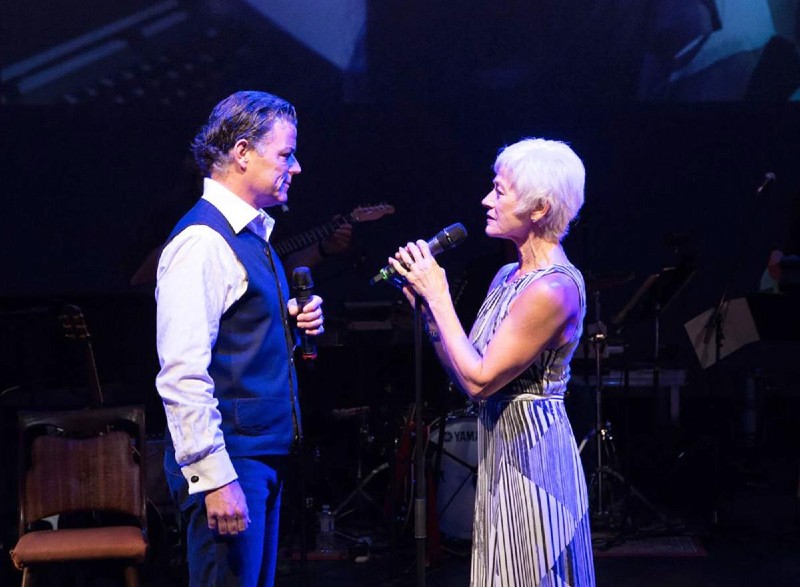The Montreal Jewish community’s normally busy spring season will be directly affected by measures announced by Quebec Premier François Legault yesterday. All indoor public events of more than 250 people will be cancelled until further notice, he said, although schools are not being closed, as of press time. The government is also asking that all “non-essential” public events be voluntarily cancelled.
And Montreal’s Federation CJA announced it is implementing a “three-week rule” regarding the scheduling of community programming.
Almost immediately, the Segal Centre for Performing Arts cancelled the remaining run of its mainstage production The Times They Are a Changin’. The next play Oslo, set to open April 19, is still on for now.
All of it Academy classes for children and teens were also cancelled until further notice.
The fundraiser The Billy Joel Experience, scheduled for March 29, was postponed to a later date. The centre said it has increased the frequency of its cleaning throughout the premises.
A major casualty is the Zimria, a concert by Jewish day school choirs that has been held annually for 36 years. Organized by the Bronfman Jewish Education Centre, the event was to have taken place March 25 at Congregation Shaar Hashomayim.
Cantor Daniel Benlolo of the Spanish and Portuguese Synagogue said the two-week Jewish heritage tour of Morocco that he was to have led with his wife Muriel this month has been rescheduled for October. Thirty people were registered for the trip.
Meanwhile, officials of the CIUSSS West-Central Montreal held a press conference at the Jewish General Hospital (JGH) on March 12 to provide an update.
The agency’s associate chief executive officer Francine Dupuis said of the global pandemic, “We are almost in a war situation,” but reassured the public that the JGH is prepared for a large outbreak that necessitates a high number of hospitalizations.
The JGH’s Pavilion K is one of four sites in the province designated by the government to treat the coronavirus patients requiring hospitalization. It’s the only one in Montreal for adults.
Currently, two people with the disease are being treated there, but the officials declined to comment on their condition.
The JGH was chosen because it has 87 rooms in that pavilion with negative-pressure ventilation systems that prevent contaminated air from circulating outside the room.
Dr. Louise Miner, the JGH director of professional services, said having a sufficient number of respirators is crucial. At present, there are respirators in all of the JGH’s intensive-care rooms and operating rooms.
Dr. Yves Longtin, the CIUSSS chief of infection diseases, stressed the necessity of enough surgical masks for health-care workers. Up to 50 masks per day are needed to care for a single coronavirus patient, he said.
Dupuis said plans are underway to open a COVID-19 screening clinic in the West End. The only one on the Island of Montreal at present is in the former Hôtel Dieu hospital.
As of March 12, there were 13 confirmed cases of the coronavirus in Quebec.
Montreal’s Federation CJA is reviewing whether a program will go ahead three weeks prior to the scheduled date.
CEO Yair Szlak said the federation is endeavoring to make every committee meeting accessible through phone, Skype or Zoom.
Other precautions being taken against the spread of the coronavirus include us-ing a stronger antiviral cleaning agent in the federation building, installing hand sanitizers at the elevator of each floor and advising employees, volunteers and anyone else who would otherwise come into the building who does not feel well to stay home.
Those who do enter are advised to use proper hand hygiene and avoid unnecessary physical contact, such as hugging and kissing.
At the public longterm care facilities associated with the Jewish community that are administered by the CIUSSS West-Central Montreal, all visitors, including volunteers, are being checked before they are allowed to enter.
Barbra Gold, director of seniors’ support services at the CIUSSS, told The CJN that at the entrance of these institutions visitors will find a large sign warning them that they may not come in if they are not feeling well, have recently travelled to a list of places, or been in contact with anyone possibly exposed to COVID-19 or an acute respiratory illness.
A security guard or receptionist will be asking them these questions, she said, and, if the answer is yes to any of those criteria, the person will be barred.
The facilities associated with the Jewish community are Maimonides Geriatric Centre, Jewish Eldercare Centre and Mount Sinai Hospital, as well as the intermediate-care Lev Tov.
Gold said details about these proce-dures would be posted on the CIUSSS West-Central Montreal website by the end of March 12.
Gold said the same monitoring proce-dure applies to staff at every shift.
While no other restrictions have been placed at this time on loved ones visiting residents of these facilities, the CIUSSS is not admitting members of the general public, for example, to large gatherings and such event are being limited even for residents.
On March 11, the World Health Organization (WHO) declared the nova corona-virus, which causes the diseases COVID-19, a pandemic.
